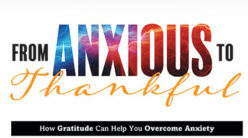Recently when my schedule was particularly hectic, a friend sent me a greeting card advertising a hotline for stressed-out people. To reach this hotline one dialed 1-Need-to-Cope, and the following automated menu came on the line:
To hear a primal scream, press 1.
To record your own primal scream, press 2.
To play it back, press 3.
For a list of ideas on how to get revenge, press 4.
To order a stress survival kit for $500, press 5.
When I opened the card, it read “To reach a friend who’ll understand, dial my number.” Under my friend’s signature was his phone number.
Merely receiving that card relieved some of the tension I was feeling. As Sir William Temple noted many centuries earlier, “The greatest medicine is a true friend.”
There is mounting evidence that strained relationships breed distress and ill health, while loyal friendships promote wellness:
• A study of the medical records of 1,337 students at Johns Hopkins University revealed that the psychological factors that most strongly correlated with illnesses were: (1) a lack of closeness with parents, and (2) a negative attitude toward one’s family.
• A research project conducted at the University of Houston and Ohio State University yielded surprising results. The research team fed a high-cholesterol diet to a control group of rabbits to determine the effects on the cardiovascular system. One set of rabbits in the control group had an unexpected 60 percent reduction in cholesterol deposits when compared with the others on the same high-cholesterol diet.
Further inquiry revealed that all the rabbits in the healthier group were found to have been kept in the same lab room and were played with each day by the lab assistant’s daughter while he was feeding the other rabbits. The difference in the results was so significant that the experiment was repeated twice more, but with the added parameters to the experiment that one set of rabbits on the high cholesterol diet was to be talked to, petted, and played with for 5-10 minutes each time they were fed. The results came back the same each time—a 60 percent reduction of cholesterol deposits when compared to the others.
• During a nine-year period, the health histories of 7,000 people were studied. Those who reported having the fewest social connections (in terms of marriage, contact with close friends, active membership in a church or other group) died at nearly three times the rate as those who reported having the most.
• A Journal of the American Medical Association article on research on the social relationships of 276 people reported that those with fewer social connections were nearly four times more likely to become ill when exposed to cold viruses.
Good relationships matter. So what can be done to develop destressing, health-promoting relationships?
1. Treasure close friends. In his book Why Am I Afraid to Tell You Who I Am? John Powell identified five levels of communication: stranger (communicating nonverbally and with clichés), acquaintance (reporting the facts), casual (sharing of ideas and opinions), close (safe self-disclosure of feelings and emotions), and intimate (complete openness, in which you can share anything and feel your confidence will never be betrayed). Time availability and emotional capacities limit most people to 12-15 close friends and 3-5 intimate friends. If you have friends at the close or intimate levels, treasure them as among your greatest assets.
2. Be an active listener. In the modern environment in which radios, TVs, and podcasts are often used to provide background noise, people are taught to tune out the human voice while they work on other things. Unwittingly they thus train themselves to tune out family members or friends who talk to them.
Drs. Ronald Nathan and Marian Stuart point out in their book Coping With the Stressed-out People in Your Life that we can think three to four times faster than most people talk. That makes it tempting to be preparing a response or even thinking of other things while someone is talking to you. It takes effort to concentrate on what someone is saying, trying to feel what they are feeling, asking questions for clarification, feeding back what you are hearing. But that’s the discipline of cultivating healthy relationships.
3. Watch your nonverbals. Research suggests that at the very most only 30 percent of what we communicate takes place verbally, with 70 percent or more occurring nonverbally. A simple look, gesture, or touch can speak volumes, communicating affirmation, acceptance, and approval, or their opposites. Never underestimate the power of your nonverbals to cultivate relationships.
4. Deal with conflicts directly. When a friend offends you, follow this ancient wisdom of Scripture: “Argue your case with your neighbor directly, and do not disclose another’s secret” (Proverbs 25:9, NRSV). When you break a confidence and tell others behind a friend’s back about the trouble between the two of you, you lose credibility with
your friend and with those you’ve told about it. Dealing directly with an offender isn’t easy at the time, but has the best chance of preserving friendships in the long run.
5. Forgive wrongs done against you. Nothing can paralyze a friendship like a hurt that’s not forgotten. Dr. Skip MacCarty, author of the Stress: Beyond Coping seminar, identifies five essential steps in the process of forgiveness.
• Recognize the need to forgive. According to Dr. Archibald Hart, “those who can’t forgive and who harbor resentments are likely to be those who carry the greatest stress.” The alternative to forgiveness is revenge, which Dr. Lewis Smedes describes as “having a videotape planted in your soul that cannot be turned off. It plays the painful scene over and over again inside your mind. It hooks you into its instant replays. And each time it replays, you feel the clap of pain again.”
• Acknowledge an inability to forgive. Most offenses are minor and can seem to be shrugged off fairly easily. But eventually a big one comes. It may simply be the accumulative “last straw.” You can’t let go of it until the other person suffers as you have. The problem is, they probably never will by your standards. So you’re trapped in a cage of your own making and can’t get out—until you acknowledge your need for help to be set free.
• Ask God to give you a forgiving spirit. The Scriptures say, “Ask and it will be given to you” (Matthew 7:7, NIV). It sounds almost too simple. But many have found that promise to be a power tool of the soul. They asked God to give them a forgiving spirit and then expected Him to do it. For some it came quickly; for others it took years. But healing did come.
• Yield the bitterness and desire for revenge to God. Say out loud or write in a journal something like this: “God, the bitterness I’ve been holding on to has kept me in bondage long enough. Please take it away and help me to go on now to something better. Thank You.” As you do that, allow yourself to feel the emotional release that takes place as you let go.
• Do good toward your offender. This is the final step in the healing process. It may take some time to get there, but you know you’ve been set free when you can hope for the best for your offender and can do them good.
6. Observe the golden rule. Every other relationship-building principle can be wrapped up in this one. When you can do to others what you would want them to do to you if you were in their place, you will be doing the best you can to assure yourself of relationships that have the power to keep you well.







